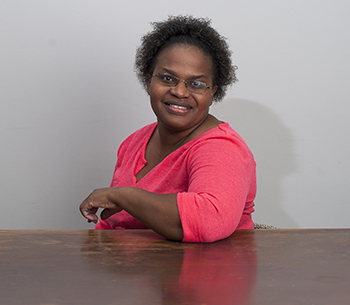Vice-Chancellor’s Prestige Scholars Programme provides platform for next generation scholars

Dr Rudo Ngara |
“The PSP provides a platform for growth, where scholars get to interact with seniors and peers, giving much needed guidance as to where you are and what the next level of your work should be.” This is how Dr Rudo Ngara —a scholar of the Vice-Chancellor’s Prestige Scholars Programme (PSP)—describes the initiative.
For young scholars, such as Dr Ngara, it can be difficult to generate sustainable funding externally for their research. These researchers are not yet established in networks and collaborations independent of their doctoral supervisors, which makes procuring funding even more challenging. This is where the PSP makes an invaluable contribution.
Through the support of PSP, Dr Ngara was recently awarded a substantial NRF (National Research Fund) grant. Dr Ngara is currently a lecturer in the University of the Free State (UFS) Faculty of Natural and Agricultural Sciences on the Qwaqwa Campus. Her research is especially topical as it investigates how crops—particularly cereals—respond and adapt to a range of abiotic stress factors. These factors include drought, high salinity, and extremely high temperatures. Dr Ngara seeks to develop resilient crops that are better suited to produce under harsh environmental conditions. This research endeavour would have been far more complicated if not for the PSP.
Although the programme is not a funding agency, it does have an excellent record of support towards generating funding from outside sources such as Fulbright, the Commonwealth and, of course, the South African NRF.